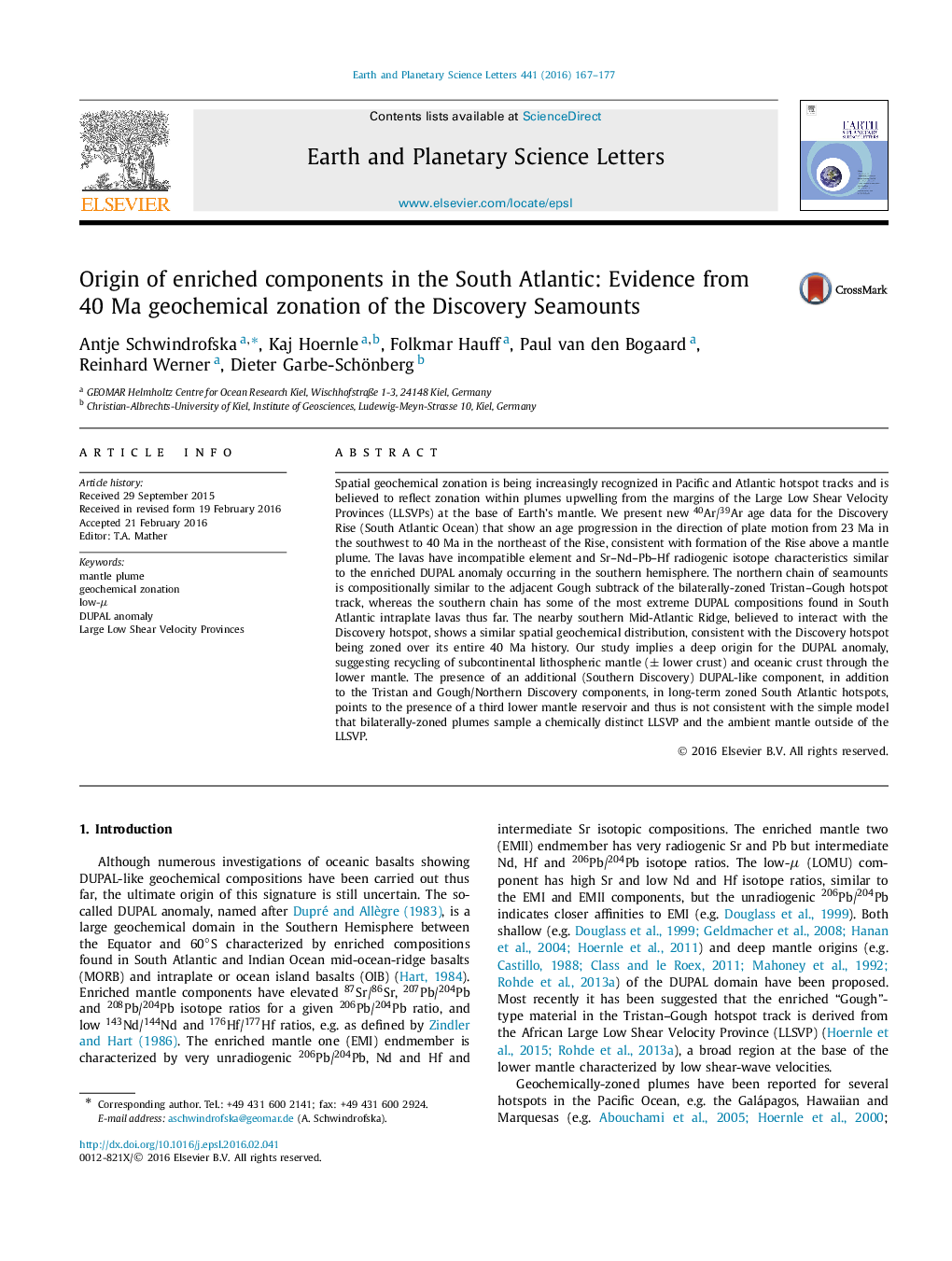| Article ID | Journal | Published Year | Pages | File Type |
|---|---|---|---|---|
| 6427526 | Earth and Planetary Science Letters | 2016 | 11 Pages |
Abstract
Spatial geochemical zonation is being increasingly recognized in Pacific and Atlantic hotspot tracks and is believed to reflect zonation within plumes upwelling from the margins of the Large Low Shear Velocity Provinces (LLSVPs) at the base of Earth's mantle. We present new 40Ar/39Ar age data for the Discovery Rise (South Atlantic Ocean) that show an age progression in the direction of plate motion from 23 Ma in the southwest to 40 Ma in the northeast of the Rise, consistent with formation of the Rise above a mantle plume. The lavas have incompatible element and Sr-Nd-Pb-Hf radiogenic isotope characteristics similar to the enriched DUPAL anomaly occurring in the southern hemisphere. The northern chain of seamounts is compositionally similar to the adjacent Gough subtrack of the bilaterally-zoned Tristan-Gough hotspot track, whereas the southern chain has some of the most extreme DUPAL compositions found in South Atlantic intraplate lavas thus far. The nearby southern Mid-Atlantic Ridge, believed to interact with the Discovery hotspot, shows a similar spatial geochemical distribution, consistent with the Discovery hotspot being zoned over its entire 40 Ma history. Our study implies a deep origin for the DUPAL anomaly, suggesting recycling of subcontinental lithospheric mantle (± lower crust) and oceanic crust through the lower mantle. The presence of an additional (Southern Discovery) DUPAL-like component, in addition to the Tristan and Gough/Northern Discovery components, in long-term zoned South Atlantic hotspots, points to the presence of a third lower mantle reservoir and thus is not consistent with the simple model that bilaterally-zoned plumes sample a chemically distinct LLSVP and the ambient mantle outside of the LLSVP.
Keywords
Related Topics
Physical Sciences and Engineering
Earth and Planetary Sciences
Earth and Planetary Sciences (General)
Authors
Antje Schwindrofska, Kaj Hoernle, Folkmar Hauff, Paul van den Bogaard, Reinhard Werner, Dieter Garbe-Schönberg,
